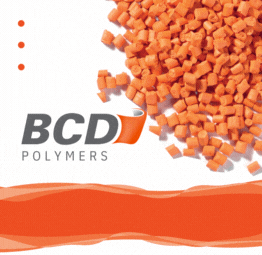Development of a coating system capable of resisting washing processes for reusable PET bottles
A successful circular economy for plastics aims to retain for as long as possible the value of the products in the cycle. The multiple use of products is thus the target. One example of this are the reusable PET bottles that, after use, are washed with caustic soda solution and refilled. In contrast to glass, however, PET is not gas-tight, which significantly reduces the shelf life of juices or carbonated beverages such as soft drinks or beer in PET bottles compared with glass bottles. Despite their many ecological advantages, the reusable PET content in the case of fruit juices in Germany was no higher than 0.5 % in 2018. In the field of reusable PET bottles, it is already state of the art to balance out this disadvantage of PET by applying an SiOx barrier coating by the plasma technology. These conventional SiOx coatings are, however, not resistant to the aggressive caustic soda in the washing process used for the returnable bottles. IKV and KHS Corpoplast GmbH have therefore developed a coating system capable of withstanding the washing process with NaOH. This has opened the way for more frequent reuse without having to dispense with effective protection of the contents.
From single-use to multi-use PET for improved resource efficiency
The German deposit system for PET bottles distinguishes between single-use PET bottles and multi-use or returnable bottles. Single-use PET bottles are, after collection, shredded and prepared for recycling. This does not, however, represent a completely closed cycle, because only 30 % of the processed PET is used for the production of new PET single-use bottles. This is due among other things to the fact that PET can only be recycled a maximum of 10 times because the molecule chains are shortened during every processing operation, which, in turn, leads to a deterioration of the material properties. The remaining 70% is used among other things in the textile industry and can then no longer be recycled into bottles. In 2018, 72% of all non-alcoholic beverages in Germany were sold in single-use PET bottles.
This is equivalent to 16.4 billion single-use PET bottles or 394,000 t of newly produced PET in Germany per year*.
Reusable PET bottles, on the other hand, are cleaned after use in a washing process with a strong NaOH solution, sterilised and subsequently refilled. At present, returnable PET bottles can pass through this cycle up to 20 times, which offers enormous potential for saving resources. If we assume that a reusable PET bottle performs the work of 15 single-use PET bottles, it would be possible, in the event of a complete changeover to multi-use, to save around 260,000 t of PET in Germany every year.
Minor extension of the production process offers fresh scope for reusable PET bottles
Especially against the background of the present plastics packaging legislation, which targets a reusable quota of at least 70 %, this research project for the coating of returnable PET bottles can make a decisive contribution. The quality and storage life of the bottled contents remains at the customary level, because, in the same process step as the application of the barrier coat that lengthens the shelf life of carbonated drinks and fruit juices, a specially developed protective coating against aggressive caustic soda solution is applied by microwave-excited low pressure plasma. As a result, beverage producers and bottling companies can now fill any product without restriction into reusable PET bottles. This opens the way to fully exploiting the savings potential at the resource level.
IKV was delighted to learn about the nomination for the German Raw Materials Efficiency Prize, which honours among other things the Institute's commitment to the topic of circular economy. Which project finally wins the prize is to be announced on 21 October 2020, when the awards are made in Berlin.
The transfer project "PECVD gas barrier coating of reusable PET bottles" is funded by the German Research Foundation (DFG) within the framework of collaborative research centre SFB-TR87 "Pulsed high-power plasmas for the synthesis of nano-structured functional layers". Our thanks go to the DFG.
*Assuming that all the bottles are 0.5 litre PET bottles with a weight of 24 g.


